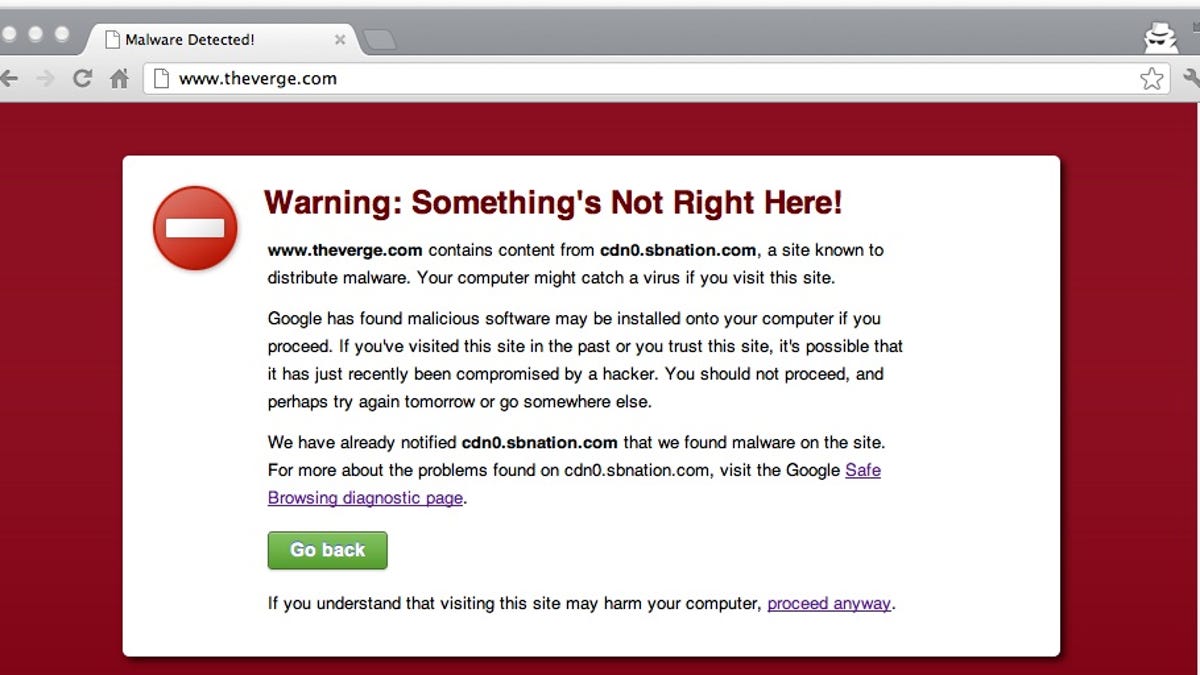Google identifies The Verge as malware host
Some Chrome users trying to visit the tech news site see a notice that it contains malware, but the site's editor in chief insists his site is safe.

Despite warnings that some Chrome users are seeing today, Joshua Topolsky wants to assure readers of The Verge that his site is not rife with malware.
The problem apparently began this morning when visitors to the tech news site using Google's Web browser were greeted with a message informing them that The Verge contained content from SBNation.com, a site the Web giant accused of distributing malware. (SBNation, a sports news site, is a Verge sister site.) "Your computer might catch a virus if you visit this site," the notice warned.
However, Topolosky, the editor in chief of The Verge insisted in a tweet this morning that his site is safe and was working with Google to resolve the issue.
Hey guys we're aware of the malware warning (which is completely incorrect). Site is safe and we're working with Google to fix issue.
— Joshua Topolsky (@joshuatopolsky) September 16, 2012
Google told CNET it was looking at the root cause of the message, declining to comment further. While not deliberately hosting malware, it's possible for sites to become compromised without their Webmaster's knowledge.
The Web giant's Safe Browsing API is designed to protect its users from malware and other attacks. Google said in June that it finds about 9,500 new malicious Web sites each day, either innocent ones that have been compromised by hackers or sites built specifically to distribute malware or for phishing. It also said it sends several million warnings every day to users of Chrome, Firefox, and Safari about malware and phishing on sites the users are about to visit.

